Building Project Management Guide
Home » Building Project Management Tips
Building project management is a crucial field that ensures the successful planning, execution, and completion of construction projects. Whether you’re managing a small residential build or a large commercial project, understanding the key components of building project management can make a significant difference in the outcome. This guide provides a comprehensive overview, outlines the key responsibilities of a building project manager, and explores the tools and technologies used in the field.
Comprehensive Overview of Building Project Management
Building project management involves coordinating all aspects of a construction project from inception to completion. It requires a strategic approach to planning, organising, and managing resources to achieve specific goals and meet specific success criteria. This field encompasses various stages, including initial planning, design, execution, monitoring, and completion.
Effective building project management ensures that projects are completed on time, within budget, and to the desired quality standards. It involves managing risks, addressing challenges, and ensuring that all stakeholders are aligned with the project’s objectives.
Key Responsibilities of a Building Project Manager
The role of a building project manager is multifaceted, requiring a blend of technical knowledge, leadership skills, and effective communication. Here are some key responsibilities:
1. Planning and Scheduling
One of the primary tasks of a building project manager is to develop a detailed project plan. This includes setting timelines, defining milestones, and outlining the resources needed. Effective scheduling ensures that each phase of the project is completed in a timely manner.
2. Budget Management
Managing the project budget is crucial to avoid cost overruns. A project manager must estimate costs accurately, monitor spending, and make necessary adjustments to stay within budget.
3. Resource Allocation
Allocating resources efficiently, including labour, materials, and equipment, is essential for keeping the project on track. The project manager ensures that the right resources are available at the right time.
4. Risk Management
Identifying potential risks and developing mitigation strategies is a key aspect of building project management. This includes anticipating issues that could delay the project or increase costs and finding ways to prevent or address them.
5. Communication and Coordination
A building project manager must facilitate effective communication among all stakeholders, including clients, contractors, architects, and suppliers. Coordinating these diverse groups ensures everyone is on the same page and working towards common goals.
Tools and Technologies Used in Building Project Management
Advancements in technology have significantly enhanced the efficiency and effectiveness of building project management. Here are some essential tools and technologies:
1. Project Management Software
Tools like Microsoft Project, Primavera, and Procore help project managers plan, schedule, and track project progress. These platforms offer features such as task management, Gantt charts, and real-time collaboration.
2. Building Information Modeling (BIM)
BIM software, such as Autodesk Revit, allows for the creation of digital representations of the physical and functional aspects of a project. This technology facilitates better design, construction, and management processes by providing a comprehensive view of the project.
3. Mobile Applications
Mobile apps enable project managers to stay connected and manage tasks on the go. Apps like PlanGrid and Fieldwire allow for real-time updates, document sharing, and issue tracking directly from the construction site.
4. Drones and Aerial Imaging
Drones are increasingly used for site surveys, inspections, and progress monitoring. Aerial imaging provides detailed visuals that help in identifying issues and making informed decisions.
5. Cloud-Based Solutions
Cloud-based platforms offer secure and scalable solutions for document management, collaboration, and data storage. Tools like Google Drive and Dropbox ensure that all project documents are accessible to team members at any time and from any location.
Conclusion
Building project management is a dynamic and challenging field that plays a critical role in the successful completion of construction projects. By understanding the key responsibilities and leveraging modern tools and technologies, project managers can effectively navigate the complexities of construction projects and deliver outstanding results. Whether you are new to the field or looking to enhance your skills, this ultimate guide provides a solid foundation for mastering building project management.

